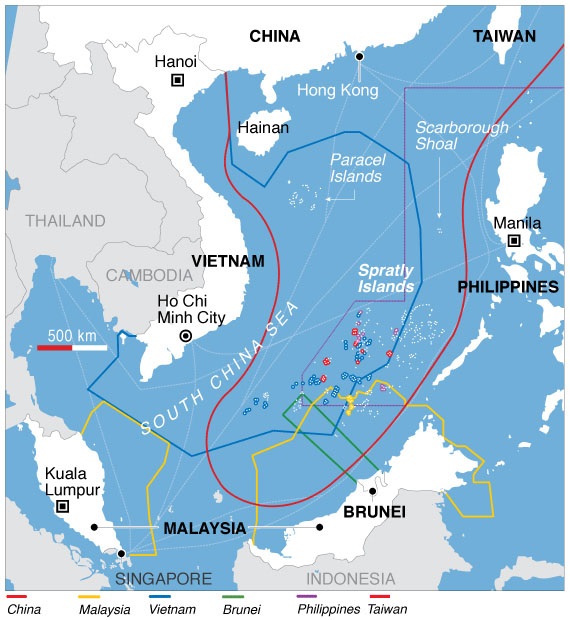Chinese and Philippine Coast Guard vessels collided for the second time within a week near the Sabina Shoal in the disputed South China Sea.
Sabina Shoal is part of the Spratly Islands and is claimed by China, the Philippines, Vietnam, and Taiwan. Chinese and Philippine vessels typically encounter each other near Second Thomas Shoal, which is about 35 miles west of Sabina Shoal.
The two collisions near Sabina Shoal within less than a week signal that the conflict is spreading despite Manila and Beijing recently announcing an agreement to ease tensions in the waters.
The two sides traded blame for the latest collision, claiming the other intentionally caused the crash. The Chinese Coast Guard said that it rescued Philippine crew members who fell in the water, but Philippine officials denied that happened.
“Claims suggesting that our personnel fell overboard and were subsequently rescued by the Chinese coastguard are completely unfounded,” said Manila’s National Task Force for the West Philippine Sea.

The South China Sea has turned into a potential flashpoint for a conflict between the US and China since the US is strongly backing the Philippines in the maritime dispute. The US has repeatedly vowed to defend the Philippines if the situation turns into a shooting war, saying the US-Philippine Mutual Defense Treaty applies to attacks on Philippine vessels.
National Security Advisor Jake Sullivan reiterated the pledge after last week’s incident in a conversation with his Philippine counterpart. The White House said in a readout of the call: “Mr. Sullivan reiterated the ironclad US commitment to the US-Philippines Mutual Defense Treaty, which extends to armed attacks on Philippine armed forces, public vessels, or aircraft—to include those of its Coast Guard—anywhere in the South China Sea.”


